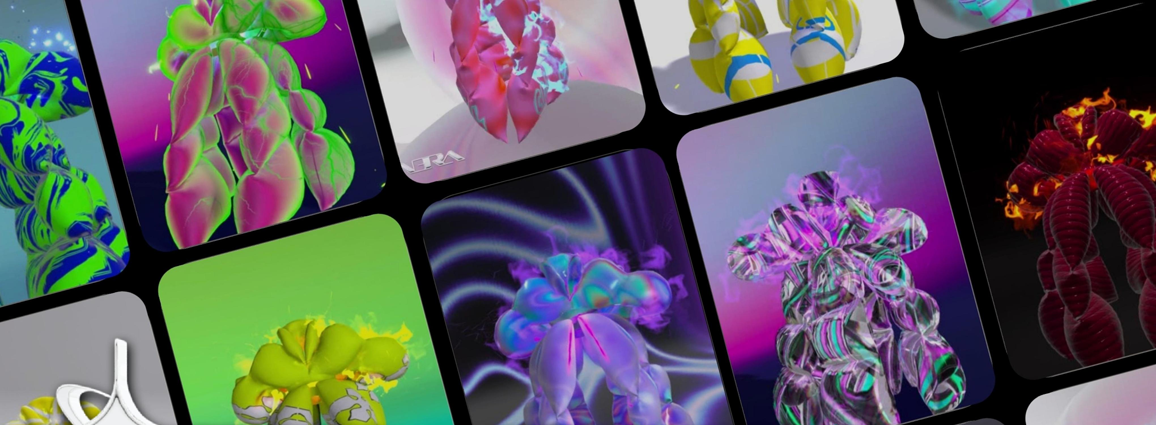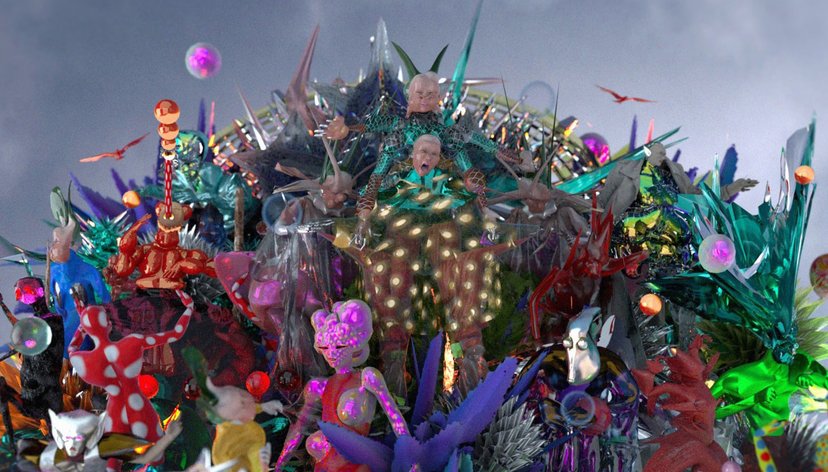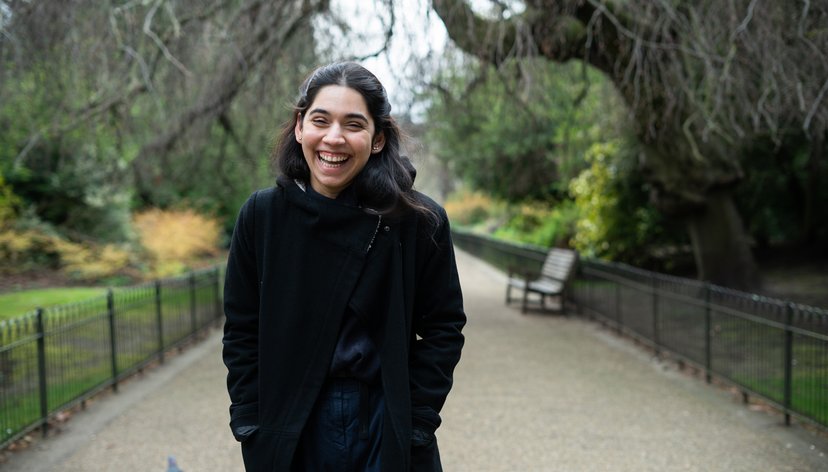
Key details
Date
- 7 June 2023
Author
- RCA
Read time
- 4 minutes
Lili Eva Bartha (MA Fashion, 2020) has a background in maths and design. As Founder and CEO of GN3RA, she's giving global audiences free expression in the Metaverse with the help of our start-up incubator, InnovationRCA.

How did you go from mathematics to fashion?
I studied for both a BSc and MSc in Applied Mathematics, at University of Szeged in Hungary. Towards the end of my MSc, I learnt to make dresses for fun. The experience of wearing my creations helped me realise I would like to express my creativity and share experiences with the world through clothing. So I moved to Denmark to study fashion.
After my BA Fashion Design, I felt the need to learn more it's environmental footprint and social impact. Fashion is the second most polluting industry in the world, desperately needing innovation and change. I moved to London to study at the RCA. Throughout my MA Fashion, I came realised that producing physical collections is not the way I wanted to contribute.
This moment was quite devastating, as it made me question whether I chose the right industry to be in. Thankfully, instead of leaving fashion , I took the advice of the Head of Programme, Zowie Broach – and stayed to reinvent my understanding of what fashion can be.
How has your understanding of fashion changed?
Once I let go of the definitions and preconceptions I was trained in, a whole new landscape opened up.
I decided to explore what limitless expression looks like without physical implications and how it can provide an alternative to consumption. I began my journey into the digital by learning a number of digital software programmes in a few months. 3D, XR and game design suddenly became essential to my practice.
During the pandemic there was a huge demand for digital fashion and 3D services. My studio worked on a number of projects supporting emerging sustainable designers and bigger industrial clients. I started lecturing and researching in universities across Europe on new media and digital fashion, and even did a residency at the Amsterdam University of Applied Sciences as the first ever digital fashion designer in that position. The residence resulted in Beyond Vision, a VR work that allowed me to scope the potential of immersive fashion design.
“I could not think of a better place to refine your creative practice.”

Did the MA Fashion have a big impact on you?
The MA Fashion gave me the freedom I needed to reinvent my vision of the industry, and build up enough strength to dedicate my whole career to challenge its status quo through disruptive systems. This would not have been possible without exceptional tutors like Dr Susan Postletwhaite, Tristan Webber and the most legendary Head of Programme, Zowie Broach.
I was also impacted by the amazing technical support of Kam Raoofi, Lead Technician and Thomas Deacon, Immersive Technician. It was amazing to be surrounded by such exceptional people at the RCA. Never dismissing our craziest ideas, always supporting the exploration of our newest obsession. I could not think of a better place to refine your creative practice.
“It was the first time I was brave enough to let go of what I thought fashion was.”
Do you have any standout memories from studying at the RCA?
I started the MA Fashion with Future Systems, a module on the future of the fashion industry. I developed a system that looked at garment design and use from an algorithmic point of view, spliced with a bit of machine learning. It was the first time I was brave enough to let go of what I thought fashion was, after years of traditional training. After this project, I spent most of my time exploring what fashion design could be, analysing design theories through academic research and hands-on experimentation.
After my breakthrough, I realised that physical fashion design is not the way for me. I started exploring speculative digital alternatives to traditional fashion. My favourite moment was during a presentation of my first ever digital project. After just two months learning Unity and VR, I had built a speculative virtual world and it was the first time that my model wore a VR head set and custom motion capture suit to demonstrate the experience. I was nervous about her falling off the stage but her performance was one of the most beautiful things I have ever seen. Pure surprise, being completely lost in my world on stage in front of over 100 people. Honesty is the best way to present something radical.
Where did the idea for GN3RA come from?
My experience with my studio and user feedback from Beyond Vision inspired me to translate my ideas into a concept that today forms the foundations of GN3RA. Engagement with design students while lecturing and researching also helped to refine the vision by revealing a number of pain points for emerging creatives wanting to create digital content, for example tackling steep technical learning curves when engaging with industry standard 3D and fashion software.

“I'm proud to belong to InnovationRCA's wonderful community of like-minded founders.”
What is it like being part of the InnovationRCA start-up incubator?
I used to be a North Londoner. But I moved to Battersea, just to live ten minutes away from InnovationRCA. That's how dedicated I am to InnovationRCA and its potential impact on my business. It's a great place to kick start a business and the team is exceptionally dedicated to seeing us succeed. They look after us with the utmost care.
I'm proud to belong to InnovationRCA's wonderful community of like-minded founders navigating the challenging waters of entrepreneurship. I love discussing the latest hardware trial of my neighbour's business over a coffee or learning about how conversational AI can make ordering a pizza more efficient on my breaks.
It's really inspiring to meet a diverse range of visitors who we get to network with, while we also have the possibility to benefit from the institutional profile of the RCA. Developing relationships with cutting-edge academic researchers in the very same building!
What advice would you give future entrepreneurs?
The most important thing is to make sure you are dedicated to your idea and believe in your vision. Entrepreneurship can be a hard journey, it's often a rollercoaster. But it's the most beautifully challenging journey I’ve ever known.
Also, I would absolutely highlight the importance of understanding how investors engage with founders in the early stages of their business. Investment is often made in the founder and the team as much as the idea, if not more. The more you understand your place in the business, the better the team you can build.

